人教版英语八年级下册Unit 9 Have you ever been to a museum?复习课件 (共32张PPT)
文档属性
| 名称 | 人教版英语八年级下册Unit 9 Have you ever been to a museum?复习课件 (共32张PPT) |
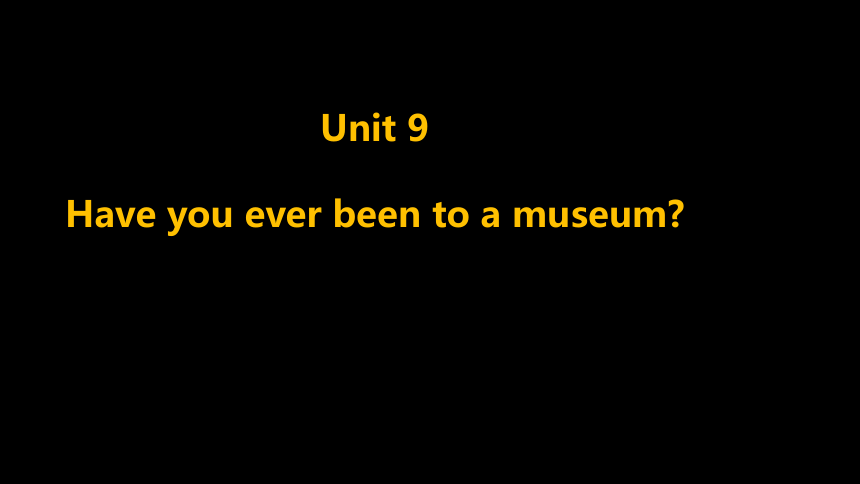
|
|
| 格式 | zip | ||
| 文件大小 | 5.9MB | ||
| 资源类型 | 教案 | ||
| 版本资源 | 人教新目标(Go for it)版 | ||
| 科目 | 英语 | ||
| 更新时间 | 2020-05-20 00:00:00 | ||
图片预览

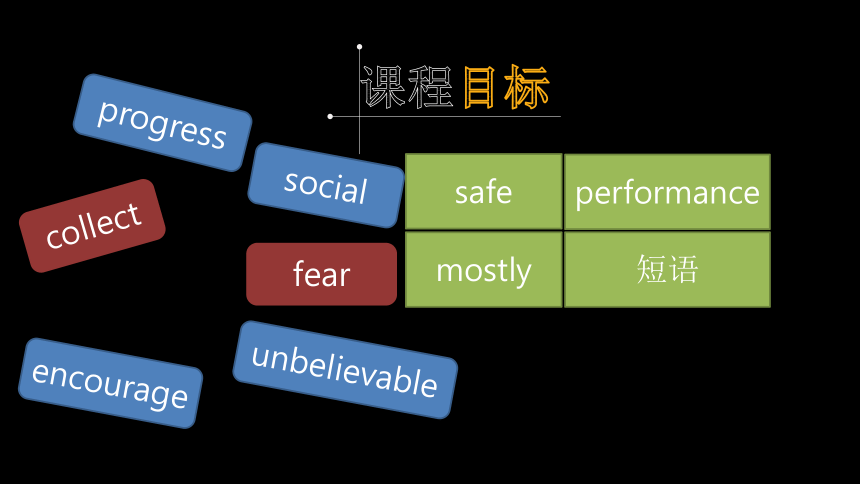
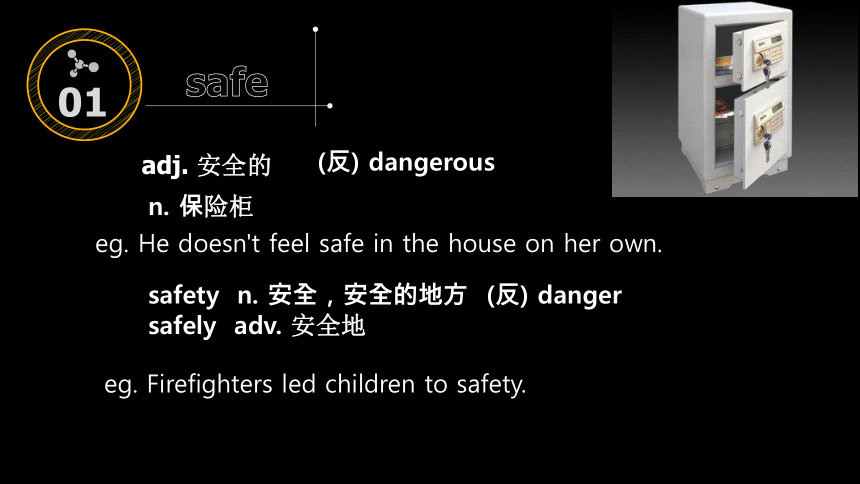
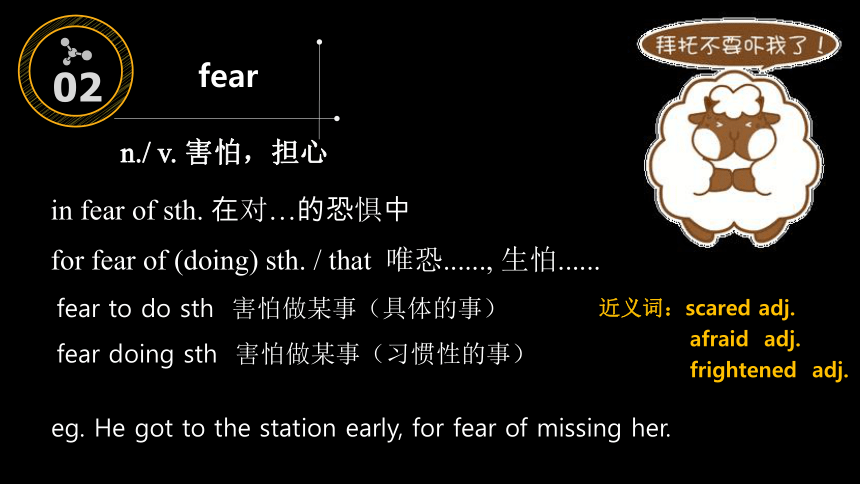
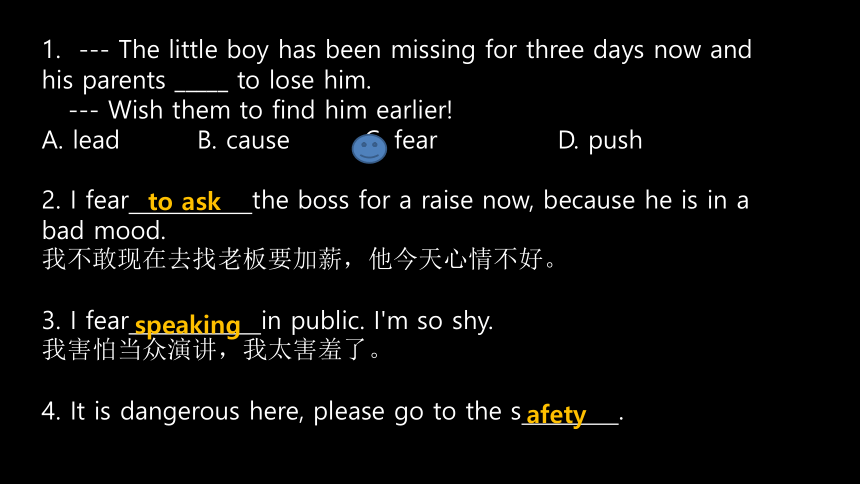
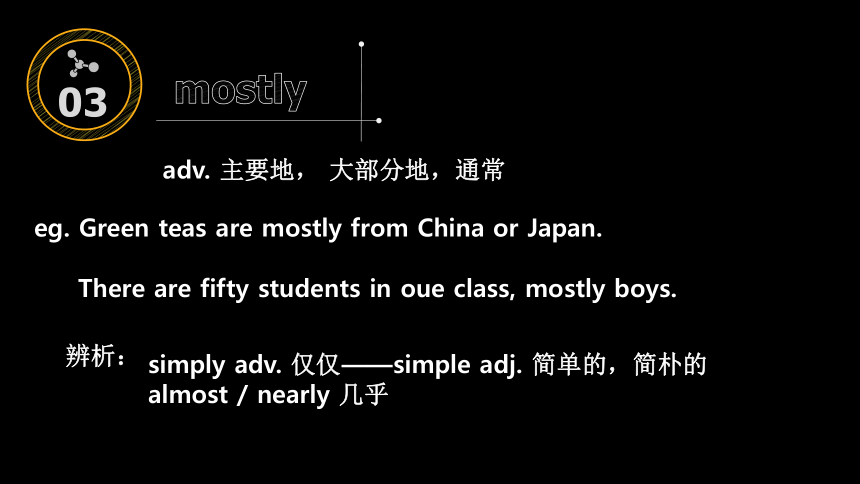
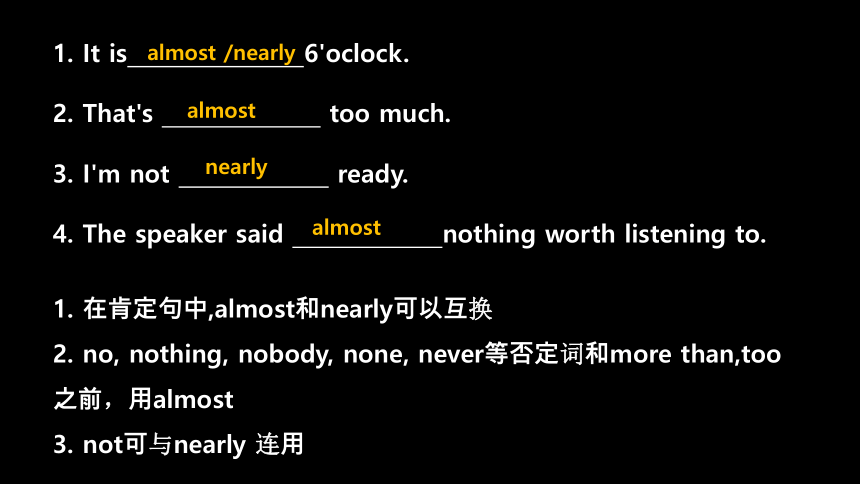
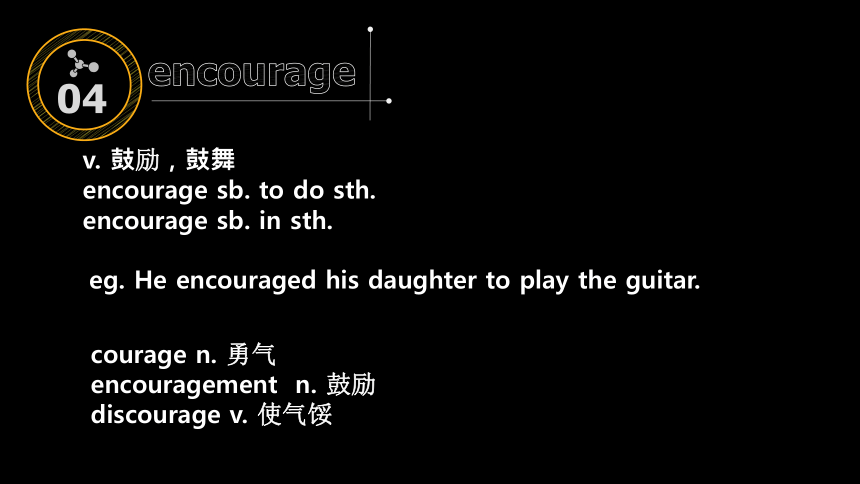

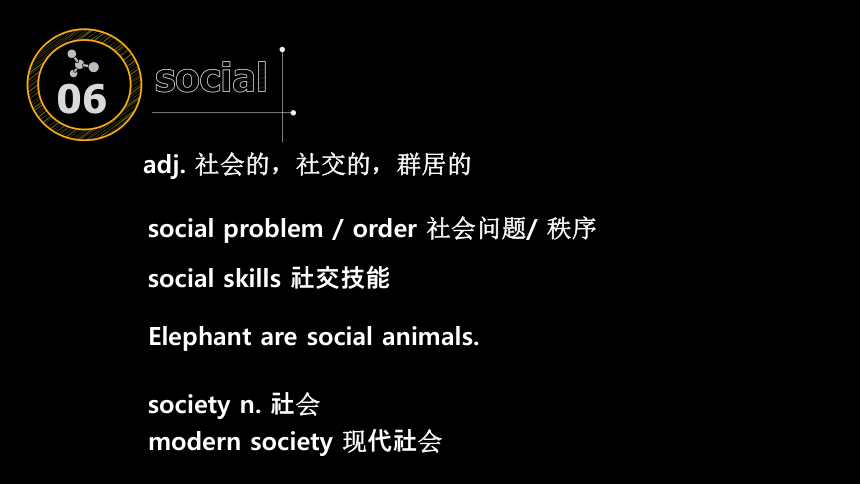
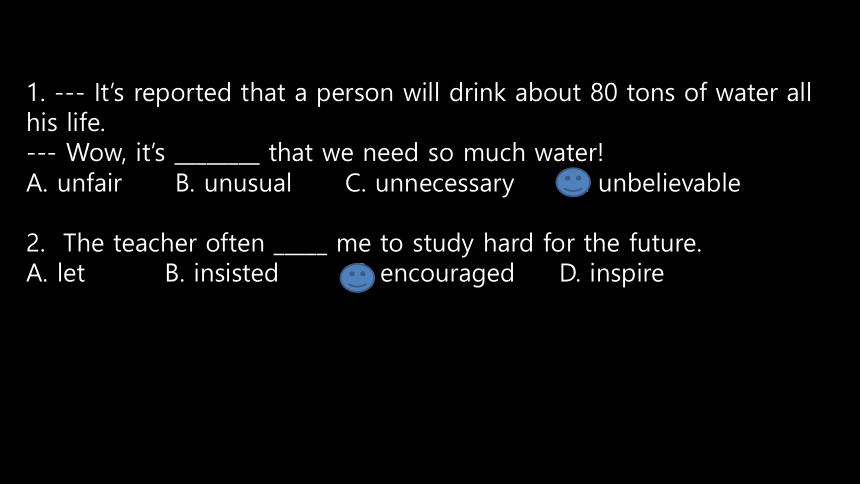
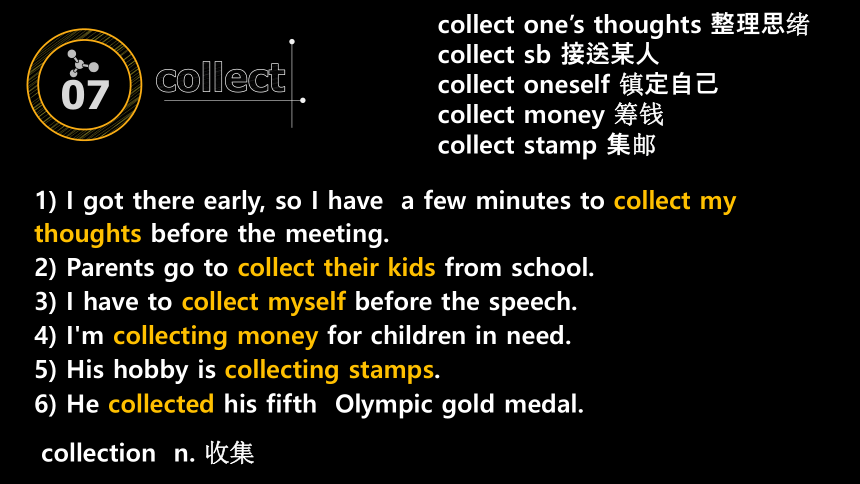
文档简介
(共32张PPT)
Unit 9
Have you ever been to a museum?
课程目标
safe
mostly
performance
短语
collect
encourage
social
fear
progress
unbelievable
safe
01
adj. 安全的
eg. He doesn't feel safe in the house on her own.
eg. Firefighters led children to safety.
(反) dangerous
n. 保险柜
safety n. 安全,安全的地方 (反) danger
safely adv. 安全地
fear
02
in fear of sth. 在对…的恐惧中
for fear of (doing) sth. / that 唯恐......, 生怕......
n./ v. 害怕,担心
eg. He got to the station early, for fear of missing her.
fear to do sth 害怕做某事(具体的事)
fear doing sth 害怕做某事(习惯性的事)
近义词:scared adj.
afraid adj.
frightened adj.
1. --- The little boy has been missing for three days now and his parents _____ to lose him.
--- Wish them to find him earlier!
A. lead B. cause C. fear D. push
2. I fear the boss for a raise now, because he is in a bad mood.
我不敢现在去找老板要加薪,他今天心情不好。
3. I fear in public. I'm so shy.
我害怕当众演讲,我太害羞了。
4. It is dangerous here, please go to the s .
to ask
speaking
afety
mostly
03
adv. 主要地, 大部分地,通常
simply adv. 仅仅——simple adj. 简单的,简朴的
almost / nearly 几乎
eg. Green teas are mostly from China or Japan.
There are fifty students in oue class, mostly boys.
辨析:
1. It is 6'oclock.
2. That's too much.
3. I'm not ready.
4. The speaker said nothing worth listening to.
almost /nearly
almost
nearly
almost
1. 在肯定句中,almost和nearly可以互换
2. no, nothing, nobody, none, never等否定词和more than,too之前,用almost
3. not可与nearly 连用
04
encourage
v. 鼓励,鼓舞
encourage sb. to do sth.
encourage sb. in sth.
courage n. 勇气
encouragement n. 鼓励
discourage v. 使气馁
eg. He encouraged his daughter to play the guitar.
动词 名词 形容词
believe
believable
belief
05
unbelievable
social
adj. 社会的,社交的,群居的
06
social problem / order 社会问题/ 秩序
social skills 社交技能
Elephant are social animals.
society n. 社会
modern society 现代社会
1. --- It’s reported that a person will drink about 80 tons of water all his life.
--- Wow, it’s ________ that we need so much water!
A. unfair B. unusual C. unnecessary D. unbelievable
2. The teacher often _____ me to study hard for the future.
A. let B. insisted C. encouraged D. inspire
07
collect
collection n. 收集
collect one’s thoughts 整理思绪
collect sb 接送某人
collect oneself 镇定自己
collect money 筹钱
collect stamp 集邮
1) I got there early, so I have a few minutes to collect my thoughts before the meeting.
2) Parents go to collect their kids from school.
3) I have to collect myself before the speech.
4) I'm collecting money for children in need.
5) His hobby is collecting stamps.
6) He collected his fifth Olympic gold medal.
08
progress
make progress 取得进步
in progress 正在进行中
eg. They have made great progress in controlling heart disease in the past twenty years.
We're hoping to progress the project more quickly next week.
n. 进步,进展(不可数)
v. 进步,进展
09
performance
This evening's performance will begin at 8 o'clock.
David's performance at school has greatly improved.
perform v. 1. 表演
2. 执行 perform a task 执行任务
performer n. 表演者
表演
表现
辨析:put on a performance 表演
put up a performance 表现的好(球类)
1. ---Ms. Li, our basketball team beat East Team.
----Well done. Each player of our team a great performance.
A. put out B. put off C. put on D. put up
2. It’s unbelievable that technology has in such a rapid way.
A. performed B. progressed C. belived D. feared
3. --- Do you notice that the traffic in Sanyang Road is very crowed now?
--- Yes, because it is under repair. But it’s certain that work on this road is ______.
A.achieving B. progressing C. encouraging D. making
4. --- The ground is so dirty.
--- Yes. We should ______ all the waste newspapers after the picnic.
A.collect B. pass C. hide D. drop
16
10
invent
invent v. ----invention n. ----invntor n.
invite v. ----invitation n.
v. 发明
high-speed railway alipay shared bike online shopping
11
rapid
rapid growth / increase / developement
rapidly adv.
adj. 快速的
近义词:fast / quick
12
perfect
eg. His English is perfect.
The weather was perfect the whole week.
Nobody is perfect.
Practice makes perfect.
adj. 完美的
熟能生巧
13
spring
eg. spring flowers
spring water / hot spring
an old armchair with broken springs
The branch springs back and hits him in the face.
n. 春天
n. 喷泉
n. 弹簧
(常用复数)
v. 弹跳
14
短语
1) On the one hand, I‘d like to eat out. On the other hand, I should save money.
On _____ hand, she is a daughter. On _____ hand she is a mother.
A. one; other B. the one; another
C. the one ; the other D. one; another
一方面,......另一方面(表对立)
2) all year round 全年 = the whole year
3) a couple of = several 好几个
4) lead to
22
The street leads to the supermarket.
He led us to the museum.
Heart failure led to her father's death.
通向;带到; 导致
lead v. 带路,领路
n. 领先,榜样 take the lead带头
leader n. 领导,领袖
Grammar focus
现在完成时(二)
词组 含义 搭配
have gone to 到某地去了(去而未归)
have been to 去过某地(去而复归) just, never, ever, before, 次数
have been in 在某的待多长时间 how long, for, since
He has just gone to Chongqing, I’m afraid you can’t see him.
My father has never been to the park with me before.
I have been abroad many times.
I have been in Wuhan for ten years.
区别一:have gone to和 have been to
练一练
1.1. – Jim isn’t in the classroom. Where is he now?
– He _____ the library.
A. will go to B. has been to
C. has gone to D. goes to
2. Julie’s father ____ to London last month. He ____ there three times.
A. went; had gone B. has gone; has been
C. went; has been D. has been; had gone
3. – Have you ever _____ Xingkai Lake?
– Yes. I ____ there last month. It’s quite beautiful.
A. gone to; went B. been to; went
C. been to; go D. been in; went
4. Tom _____ school two years ago and he ____ for two years.
A. leaves; has gone B. left; has been away
C. leaves; has been away D. left; has gone
5. 1. Jane has _____ to BeiJing. She will come back tomorrow.
A. been B. never been C. went D. gone
6. -- Hello, this is Mr. Green speaking. Can I speak to Mr. Black?
-- Sorry. He ______ the Bainiao Park.
A. has been to B. has gone to
C. went to D. will go to
7. You don’t need to describe her. I _______ her several times.?
A. had met B have met C. met D. meet
27
8. --____ you ever ____ to the US?
-- Yes, twice.
A. Have, gone B. Have, been
C. Do, go D. were, going
9. -- I’m sorry to keep you waiting.?
--Oh, not at all. I _____here only a few minutes.?
A have been B. had been
C. was D. will be
10. --Hi, I'm looking for you everywhere.
--Oh, I to the library.
A. have gone B. have been
C. went D. had been
区别二:现在完成时和一般过去时的区别
29
现在完成时:强调这一动作产生的结果对现在的影响,与现在有关。
一般过去时:仅仅表示在过去某一时刻曾发生过这一动作,与现在无关。
He has studied English for five years.
He studied English for five years.
(说明他还继续学下去)
(只说明他过去学过五年英语,但现在不学了)
常与 already, yet, ever, never, recently, for+一段时间, since, in the past/ last ten years, so far, up to now
常与yesterday, two days ago, last year, just now, the other day, in+过去年份
30
动 词 填 空:
1. you (clean) the room?
Yes, we (do) that already.
When you (do) it?
We (do) it an hour ago.
2. he (see) this film yet? Yes.
When he (see) it?
He it last week.
3.Mr Chen (give)up smoking last year.
4.Mr Chen (give) up smoking since last year.
Have cleaned
have done
did do
did
Have seen
did see
saw
gave
has given
区别三:延续性动词和瞬间性动词
31
延续性动词可与时间段连用
短暂性动词不能与时间段连用
1 begin be on 6 return be back
2 leave be away 7 join be in
3 go be off 8 die be dead
4 borrow keep 9 buy have
5 come be 10 arrive be here/there
open —— be open close----be closed
fall asleep—be asleep make friends-----be friends
marry----- be married
1. Hurry up! The play __________ for ten minutes
A has begun B had begun
C has been on D began
2. -How long may I the book? -For two weeks.
A. borrow B. lend C. keep D. buy
3. How long have you ____ this book?
A. bought B. borrowed C. had D. lent
4. He from China since two days ago.
A. left B. has been away
C. has left D. leaves
32
Unit 9
Have you ever been to a museum?
课程目标
safe
mostly
performance
短语
collect
encourage
social
fear
progress
unbelievable
safe
01
adj. 安全的
eg. He doesn't feel safe in the house on her own.
eg. Firefighters led children to safety.
(反) dangerous
n. 保险柜
safety n. 安全,安全的地方 (反) danger
safely adv. 安全地
fear
02
in fear of sth. 在对…的恐惧中
for fear of (doing) sth. / that 唯恐......, 生怕......
n./ v. 害怕,担心
eg. He got to the station early, for fear of missing her.
fear to do sth 害怕做某事(具体的事)
fear doing sth 害怕做某事(习惯性的事)
近义词:scared adj.
afraid adj.
frightened adj.
1. --- The little boy has been missing for three days now and his parents _____ to lose him.
--- Wish them to find him earlier!
A. lead B. cause C. fear D. push
2. I fear the boss for a raise now, because he is in a bad mood.
我不敢现在去找老板要加薪,他今天心情不好。
3. I fear in public. I'm so shy.
我害怕当众演讲,我太害羞了。
4. It is dangerous here, please go to the s .
to ask
speaking
afety
mostly
03
adv. 主要地, 大部分地,通常
simply adv. 仅仅——simple adj. 简单的,简朴的
almost / nearly 几乎
eg. Green teas are mostly from China or Japan.
There are fifty students in oue class, mostly boys.
辨析:
1. It is 6'oclock.
2. That's too much.
3. I'm not ready.
4. The speaker said nothing worth listening to.
almost /nearly
almost
nearly
almost
1. 在肯定句中,almost和nearly可以互换
2. no, nothing, nobody, none, never等否定词和more than,too之前,用almost
3. not可与nearly 连用
04
encourage
v. 鼓励,鼓舞
encourage sb. to do sth.
encourage sb. in sth.
courage n. 勇气
encouragement n. 鼓励
discourage v. 使气馁
eg. He encouraged his daughter to play the guitar.
动词 名词 形容词
believe
believable
belief
05
unbelievable
social
adj. 社会的,社交的,群居的
06
social problem / order 社会问题/ 秩序
social skills 社交技能
Elephant are social animals.
society n. 社会
modern society 现代社会
1. --- It’s reported that a person will drink about 80 tons of water all his life.
--- Wow, it’s ________ that we need so much water!
A. unfair B. unusual C. unnecessary D. unbelievable
2. The teacher often _____ me to study hard for the future.
A. let B. insisted C. encouraged D. inspire
07
collect
collection n. 收集
collect one’s thoughts 整理思绪
collect sb 接送某人
collect oneself 镇定自己
collect money 筹钱
collect stamp 集邮
1) I got there early, so I have a few minutes to collect my thoughts before the meeting.
2) Parents go to collect their kids from school.
3) I have to collect myself before the speech.
4) I'm collecting money for children in need.
5) His hobby is collecting stamps.
6) He collected his fifth Olympic gold medal.
08
progress
make progress 取得进步
in progress 正在进行中
eg. They have made great progress in controlling heart disease in the past twenty years.
We're hoping to progress the project more quickly next week.
n. 进步,进展(不可数)
v. 进步,进展
09
performance
This evening's performance will begin at 8 o'clock.
David's performance at school has greatly improved.
perform v. 1. 表演
2. 执行 perform a task 执行任务
performer n. 表演者
表演
表现
辨析:put on a performance 表演
put up a performance 表现的好(球类)
1. ---Ms. Li, our basketball team beat East Team.
----Well done. Each player of our team a great performance.
A. put out B. put off C. put on D. put up
2. It’s unbelievable that technology has in such a rapid way.
A. performed B. progressed C. belived D. feared
3. --- Do you notice that the traffic in Sanyang Road is very crowed now?
--- Yes, because it is under repair. But it’s certain that work on this road is ______.
A.achieving B. progressing C. encouraging D. making
4. --- The ground is so dirty.
--- Yes. We should ______ all the waste newspapers after the picnic.
A.collect B. pass C. hide D. drop
16
10
invent
invent v. ----invention n. ----invntor n.
invite v. ----invitation n.
v. 发明
high-speed railway alipay shared bike online shopping
11
rapid
rapid growth / increase / developement
rapidly adv.
adj. 快速的
近义词:fast / quick
12
perfect
eg. His English is perfect.
The weather was perfect the whole week.
Nobody is perfect.
Practice makes perfect.
adj. 完美的
熟能生巧
13
spring
eg. spring flowers
spring water / hot spring
an old armchair with broken springs
The branch springs back and hits him in the face.
n. 春天
n. 喷泉
n. 弹簧
(常用复数)
v. 弹跳
14
短语
1) On the one hand, I‘d like to eat out. On the other hand, I should save money.
On _____ hand, she is a daughter. On _____ hand she is a mother.
A. one; other B. the one; another
C. the one ; the other D. one; another
一方面,......另一方面(表对立)
2) all year round 全年 = the whole year
3) a couple of = several 好几个
4) lead to
22
The street leads to the supermarket.
He led us to the museum.
Heart failure led to her father's death.
通向;带到; 导致
lead v. 带路,领路
n. 领先,榜样 take the lead带头
leader n. 领导,领袖
Grammar focus
现在完成时(二)
词组 含义 搭配
have gone to 到某地去了(去而未归)
have been to 去过某地(去而复归) just, never, ever, before, 次数
have been in 在某的待多长时间 how long, for, since
He has just gone to Chongqing, I’m afraid you can’t see him.
My father has never been to the park with me before.
I have been abroad many times.
I have been in Wuhan for ten years.
区别一:have gone to和 have been to
练一练
1.1. – Jim isn’t in the classroom. Where is he now?
– He _____ the library.
A. will go to B. has been to
C. has gone to D. goes to
2. Julie’s father ____ to London last month. He ____ there three times.
A. went; had gone B. has gone; has been
C. went; has been D. has been; had gone
3. – Have you ever _____ Xingkai Lake?
– Yes. I ____ there last month. It’s quite beautiful.
A. gone to; went B. been to; went
C. been to; go D. been in; went
4. Tom _____ school two years ago and he ____ for two years.
A. leaves; has gone B. left; has been away
C. leaves; has been away D. left; has gone
5. 1. Jane has _____ to BeiJing. She will come back tomorrow.
A. been B. never been C. went D. gone
6. -- Hello, this is Mr. Green speaking. Can I speak to Mr. Black?
-- Sorry. He ______ the Bainiao Park.
A. has been to B. has gone to
C. went to D. will go to
7. You don’t need to describe her. I _______ her several times.?
A. had met B have met C. met D. meet
27
8. --____ you ever ____ to the US?
-- Yes, twice.
A. Have, gone B. Have, been
C. Do, go D. were, going
9. -- I’m sorry to keep you waiting.?
--Oh, not at all. I _____here only a few minutes.?
A have been B. had been
C. was D. will be
10. --Hi, I'm looking for you everywhere.
--Oh, I to the library.
A. have gone B. have been
C. went D. had been
区别二:现在完成时和一般过去时的区别
29
现在完成时:强调这一动作产生的结果对现在的影响,与现在有关。
一般过去时:仅仅表示在过去某一时刻曾发生过这一动作,与现在无关。
He has studied English for five years.
He studied English for five years.
(说明他还继续学下去)
(只说明他过去学过五年英语,但现在不学了)
常与 already, yet, ever, never, recently, for+一段时间, since, in the past/ last ten years, so far, up to now
常与yesterday, two days ago, last year, just now, the other day, in+过去年份
30
动 词 填 空:
1. you (clean) the room?
Yes, we (do) that already.
When you (do) it?
We (do) it an hour ago.
2. he (see) this film yet? Yes.
When he (see) it?
He it last week.
3.Mr Chen (give)up smoking last year.
4.Mr Chen (give) up smoking since last year.
Have cleaned
have done
did do
did
Have seen
did see
saw
gave
has given
区别三:延续性动词和瞬间性动词
31
延续性动词可与时间段连用
短暂性动词不能与时间段连用
1 begin be on 6 return be back
2 leave be away 7 join be in
3 go be off 8 die be dead
4 borrow keep 9 buy have
5 come be 10 arrive be here/there
open —— be open close----be closed
fall asleep—be asleep make friends-----be friends
marry----- be married
1. Hurry up! The play __________ for ten minutes
A has begun B had begun
C has been on D began
2. -How long may I the book? -For two weeks.
A. borrow B. lend C. keep D. buy
3. How long have you ____ this book?
A. bought B. borrowed C. had D. lent
4. He from China since two days ago.
A. left B. has been away
C. has left D. leaves
32
同课章节目录
- Unit 1 What's the matter?
- Section A
- Section B
- Unit 2 I'll help to clean up the city parks.
- Section A
- Section B
- Unit 3 Could you please clean your room?
- Section A
- Section B
- Unit 4 Why don't you talk to your parents?
- Section A
- Section B
- Unit 5 What were you doing when the rainstorm came
- Section A
- Section B
- Review of Units 1-5
- Unit 6 An old man tried to move the mountains.
- Section A
- Section B
- Unit 7 What's the highest mountain in the world?
- Section A
- Section B
- Unit 8 Have you read Treasure Island yet?
- Section A
- Section B
- Unit 9 Have you ever been to a museum?
- Section A
- Section B
- Unit 10 I've had this bike for three years.
- Section A
- Section B
